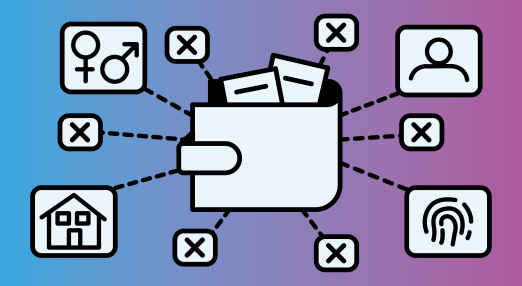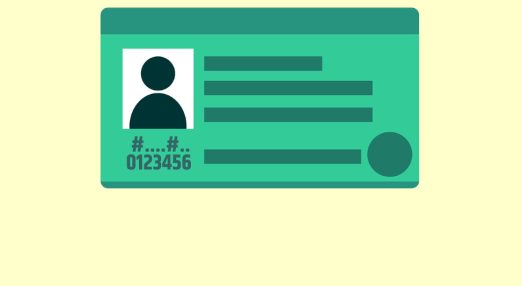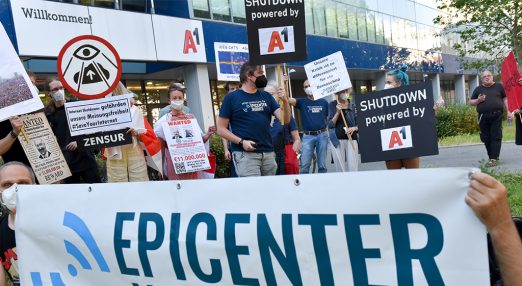epicenter.works
Filter by...
-

Civil Society Demands: European Commission Must Close e-ID Loopholes!
In a coalition of 15 civil society organisations, EDRi member epicenter.works published an open letter demanding that the European Commission close loopholes in the European Digital Identity Wallet. They highlight risks for privacy and transparency in recent eIDAS implementing acts.
Read more
-

Digital ID – civil society demands protection of Users
One single app to rent a hotel room, prove your age, your educational, financial or health certificates, or to access digital public and private services? Sounds convenient? Well, it is. But if done wrong, it will be equally easy for corporations, authorities or even bad actors to create highly detailed profiles about yourself – spanning a vast area of your everyday life – or abuse this treasure of sensitive personal information in other ways.
Read more
-

European digital identity – a potential game changer?
The foundations for a Europe-wide digital identity system are just about to be laid. Will Europe get it right and lead on this important topic? Will the EU set a global standard for the protection of sensitive user information and digital identities?
Read more
-

Closing the Loopholes in EU’s Net Neutrality Framework
The European net neutrality rules are being reformed to fix one of the biggest loopholes in the EU‘s framework: Zero-Rating. EDRi has been vocal about the dangers of Zero-Rating, a practice by which telecoms companies discriminate between online services by making some data traffic more expensive than other such traffic. Prompted by three judgments of the Court of Justice of the European Union, the Board of European Regulators for Electronic Communications (BEREC) has acknowledged that their previous 2016 Guidelines on how to enforce the Net Neutrality Regulation have to be overhauled. The direction of the reform is looking to confirm the previous submissions of EDRi over the past six years and today we add another submission to BEREC with the hope of fixing the last loophole in Europe’s net neutrality framework.
Read more
-

Register research turned privacy disaster. Epicenter.works nominates Sebastian Kurz for a Big Brother Award
Research is important. Using research as a cover to obtain unchecked access to sensitive official data is not. At the beginning of July, the Austrian chancellor, Sebastian Kurz, submitted to pre-parliamentary consultation a bill that would cause a seismic shift in how the government treats its citizens’ data. EDRi's member epicenter.works shares that from a privacy perspective the present bill is fundamentally flawed and places an enormous amount of data covering the entire population at risk for abuse.
Read more
-

The deterrent effect of the Julian Hessenthaler case: Criminal prosecution must not lead to diminished freedom of opinion
At the start of the trial against security adviser Julian Hessenthaler, who played a key role in the making of the so-called Ibiza video, 15 Austrian and international human rights organisations express their concern that his excessive criminal prosecution could – intentionally – have a deterring effect on future sources or whistleblowers and the exercise of freedom of opinion, freedom of the press and freedom of information. Julian Hessenthaler has been in custody since the end of 2020 (at first awaiting extradition, now awaiting trial) because of drug- and document-related charges against him.
Read more
-

NGO demands disclosure of A1 Telekom Austria Group’s entanglements in Belarus
EDRi's member epicenter.works protested in front of the A1 Telekom Austria Group’s building in June 2021 to raise awareness of the involvement of the partially state-owned company in the internet shutdowns in Belarus that unfolded around the controversial election of the long-term dictator Lukaschenka. The protest was accompanied by attacks by the company against the non-profit NGO.
Read more
-

Data retention, location data, cookie banners: the ePrivacy Regulation is coming
Besides cookies, the purpose of the ePrivacy Directive is to regulate a much wider area: it contains specific data protection provisions for electronic communications data, in particular content data, traffic metadata, and location data that accrues when using the internet or talking on the phone. Importantly, it also regulates if and to what extent public authorities can access this data: Article 15 of the Directive provides that restrictions of the data protection provisions need to constitute "a necessary, appropriate and proportionate measure within a democratic society to safeguard national security".
Read more
-

Telecom reform in Austria: consumers must benefit from Router Freedom
Austria is reforming its telecommunications law to incorporate the new European directives on electronic communications. The Austrian government has now an unique opportunity to leverage router freedom at the legislative level to protect consumers and the market. EDRi's member epicenter.works sheds some light on the reform.
Read more
-

FLoC: Google’s new means of following you across the web
If you browse the web without an ad blocker, you will have noticed that the ads you see tend to follow you around. Have you been looking around for a new pair of shoes? Be prepared to see more ads for shoes on completely unrelated websites. This advertising technique is called "behavioural retargeting" and is built on recording your web history in a central place, then using that information to select ads that advertisers expect you are more likely to react to. In this article. EDRi's member epicenter.works sheds some light on Google's new way of tracking users across the web.
Read more
-

EU Parliament adopts the Covid Pass: risks for data protection and new forms of discrimination
At first glance, teh Digital Green Certificate may sound interesting, but upon further reflection, it quickly becomes clear that the proposed system has the potential to divide society and expose certificate holders to far-reaching surveillance by the authorities that issue the documents. Even worse, it exacerbates inequalities and increases social exclusion, shares EDRi's member epicenter.works.
Read more
-

How Austria wants to implement upload filters and ancillary copyright
EDRi's member epicenter.works sheds light on the Austrian implementation of the controversial Copyright Directive passed in the EU Parliament in 2019. As positive as some draft provisions regarding upload filters are, the Austrian implementation of ancillary copyright is poor.
Read more
